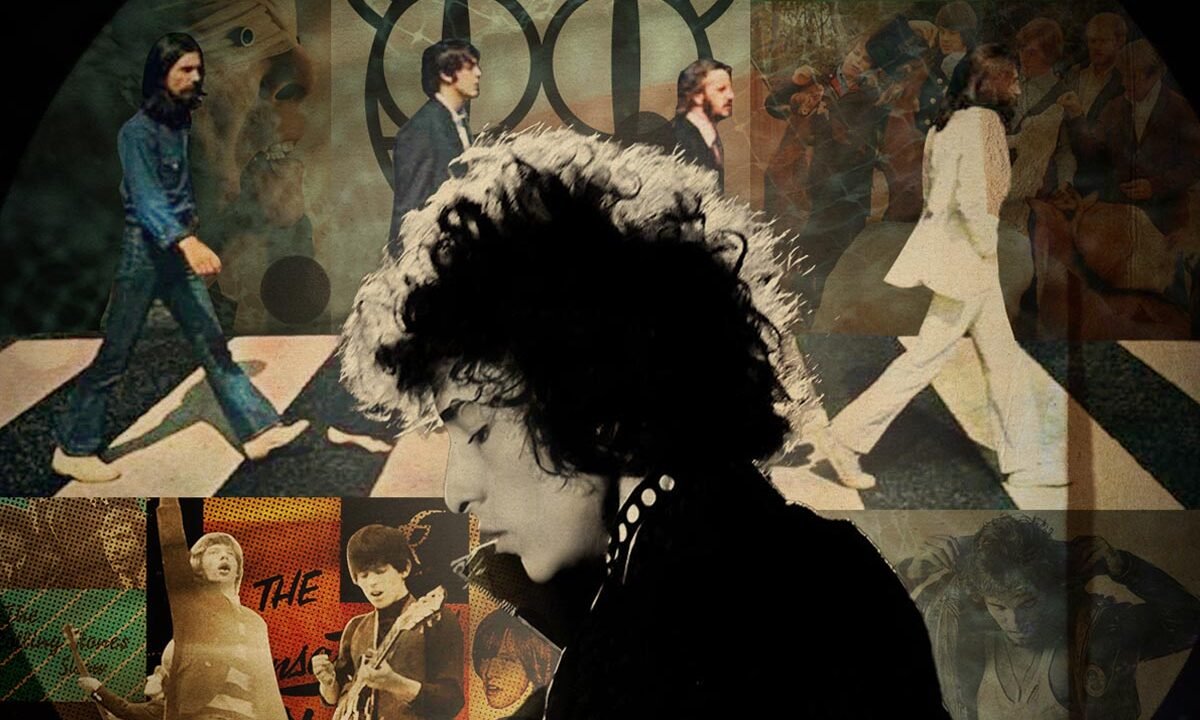

In at ten, we have The Beach Boys. The gang from the Sunshine State changed music irrevocably, so they certainly warrant their inclusion. Brian Wilson and his brothers and buddies were the first to truly utilise studio technology to render pop baroque, giving melodies layered depth beyond what typical instrumentation can muster.
But beyond that, they also, vitally, had the songs. They weren’t some avant-garde trailblazers whose mastery was later adopted by pop and made palatable. On the contrary, like alchemists, they applied new techniques in a seamless manner to create masterpieces that spoke to the human soul. These songs live on as timeless rays of sunshine that brighten up our dismal daily lives. And they offered up about 27 true crackers.
The Far Out Verdict: Worthy

The comedian Joe Pera is of the opinion that Prince is firm proof that God doesn’t exist. In his view, there is no way that the Almighty could create the world and everything in it, then happily wait over 4.5 illion years with a creation like Prince up his sleeve.
The virtuosic diva could play around 30 instruments, invented a few of his own, and knew everything about music from the top to the bottom of the industry. He was certainly one of God’s own prototypes. And he proudly showed that off in a beautiful paradox: he was a devout Jehovah’s Witness who would literally go knocking on doors even at the height of his fame, then that same evening take to the stage for some of the most sexually explicit songs to ever chart. A true one of a kind with spades of talent that defined an era. He may not have abided by consistency, but that’s more a marker of the risks of a radical than anything else.
The Far Out Verdict: Worthy

It has long been established that society seeps into art long before art is wrung back out as an era’s ‘culture’. Even Aristotle said so when he laid down his mantra: “The purpose of art is to represent the meaning of things. This represents true reality, not external aspects.” Little did he know that his statement would beget a bunch of scallies from Birmingham who would change the world with heavy metal music, with Jimmy Page’s guitar serving as a conduit of capitalist realism, at a time when flower power was surely covered in industrial soot and economic dread.
That was the magic of Led Zeppelin: the Beatles were breaking up, and the world needed a new boon to turn to. Many found a fitting one in the Brummy rockers. They offered something new. Many would argue that they also offered something overblown, sometimes even their own Robert Plant included. Others would say that they also ‘borrowed’ a little too heavily from the blues. But love them or loath them, there’s no denying that as individuals, they were each among the greatest instrumentalists in history, and somehow, they were even more than the sum of their parts.
The Far Out Verdict: Worthy

There’s only one star in history who has been called the ‘Godfather of Grunge’ despite the bulk of his back catalogue being tied to folk. Neil Young is a unique force on that front, mutating and evolving but always retaining a singular identity. He’s also been a force for good. Throughout the years, he has used his position to send political messages, raise funds for charity, and spearhead numerous boycotts.
Beyond that, you’ve got sheer beauty like ‘After the Gold Rush’, brooding masterpieces like ‘On the Beach’, and commercial hits like ‘Heart of Gold’. He’s also delivered on a variety of fronts as part of CSNY, Buffalo Springfield, and a range of other collaborations. But whether he has outstripped the likes of Nina Simone and Joni Mitchell on these fronts is debatable. A hero and a master, yes – a man beyond any of his contemporaries, not quite.
The Far Out Verdict: Not Quite

Radiohead: to some, they’re the last saving grace of modern music, to others, they’re just Travis for people who ask to sample the stout before committing to buying a half. Did they reclaim the essence of art when the charts were awash with ladish commercialism, or did they give rise to a legion of GoPro cyclists? Is it part of their charm that they would probably laugh along with the latter school of thought, or does that just further fuel the wishy-washy camp?
In a dark age where nothing much seemed to be new under the sun when it came to alternative music, they stuck out as a shining light. But should that really factor into the extent of their brightness? To some extent, their reverence does seem partly tied to the last bastion of music journalists who wanted their own Beatles to cheer, rather than acquiescing to the sorry sentiment that all the ‘heroes’ lie decades in the past, and were happy to get behind the most artful bunch. Meanwhile, the public impact was relatively limited in terms of your granny being able to name a song. The question that the 21st century is still mulling over is whether that matters or being ‘popular’ is a redundant point.
The Far Out Verdict: Not Quite

Bruce Springsteen is by far the most critically divisive artist among the upper echelons. Clearly, he has been able to convince the vast majority, but those who stand against the Boss are rather vocal in their rebuttal. To naysayers, he’s corny and clichéd, serving up overblown pop with, as Todd Rundgren put it, daft and dated platitudes that hark back to switchblade fights and James Dean from before he was even born.
To those who deeply support Springsteen, the firm revoke is as follows: have you ever heard Nebraska? Have you ever been six pints deep at a wedding and seen a five-year-old knee slide across the dancefloor as ‘Born to Run’ prematurely blasts out of the stereo? Have you ever actually been working class and taken a little bit of cheesy hope from ‘Dancing in the Dark’? These latter questions certainly capture the swooning romanticism that he has mastered, but the former critiques are also valid.
The Far Out Verdict: Not Quite

The issue with David Bowie is that the 1990s must be addressed. The fact of the matter is, every time you revisit the spooky chunk of his back catalogue between 1984 and 2013, enticed to do so by some piece or other that claims a hidden classic has been overlooked, what you’re met with is worse than you even remembered. Jungle? Come on, mate. But the silver lining is that even in being shit, at least he wasn’t boring.
Like a coked-up magpie, Bowie was always manically searching for the next bright thing, and he went on two unrivalled runs of finding nothing but fresh gold, both of which changed the world. However, the zenith of his triumph is that when he found these fresh flourishes, they always came across as endlessly considered, creating worlds that you could escape into and emerge knowing a little bit more about the one you lived in. Genius, charisma, and talent all abounded in one single man who contained multitudes beyond measure, but was always entirely Bowie, and he even shone a light on a whole universe of buddies and inspirations in the process.
The Far Out Verdict: Worthy

Keith Richards once said, “You’ve got the sun, you’ve got the moon, you’ve got the air we breathe, and you’ve got The Rolling Stones.” Reading between the lines, he certainly thinks their critical acclaim is warranted. But that self-same arrogance is what has often put a lot of people off the band. I mean, it’s hardly the most profound remark, resonating as the with all the depth of the quote equivalent of, “It’s only rock ‘n roll, but I like it.”
Yet, who could deny them the utter majesty of ‘Gimme Shelter’, a song that captured the reckoning of an era with such prowess that it can still floor you over 50 years later and after 10,000 listens. Who could argue that ‘Satisfaction’ didn’t rightfully add a bit more bite to a zeitgeist that we will look back on in 500 years as another Renaissance period? Alas, you’d also be doing the band a disservice if you didn’t reconcile their warts-n-all flaws – they wouldn’t want it any other way – and from Dirty Work to ‘Hey Negrita’, there are too many glaring asterisks to ignore.
The Far Out Verdict: Unworthy

Bob Dylan‘s poetry is astounding, but there have been plenty of other great poets. His melodies beguile with graceful ease, but the same can be said for The Beatles. The bite to his stabbing delivery was revolutionary, but in a comparable manner to The Kinks. Joni Mitchell was just as elevated. And there’s greater depth to a Nina Simone arrangement.
But did any of their words spear the zeitgeist in the manner of ‘Like a Rolling Stone’? Did any of them kickstart a genuine revolution, the sort the FBI would actively try to neutralise, quite like ‘Masters of War’? Did any of them prompt 250,000 upstanding citizens to march on Washington as ‘Blowin’ in the Wind’ did? No. That is why Dylan is the greatest. The other names on this list would not have made the music that they did if it hadn’t been for Dylan’s behemoth impact. Like Bowie, the dips are enormous, but when it comes to meaning, the peaks tower over everyone.
The Far Out Verdict: Worthy

To Lou Reed, The Strokes, and anyone else who says, ‘Come on, were they really that good?’ I casually usher you towards one single song. It was 1967, and The Beatles sat on a pinnacle of fame hitherto unknown in human history. But they had only been perched there for three years after they touched down in America on a frosty February in 1964. These days, three years roughly represents one solitary album-tour cycle for a group. But in that short window, the Liverpudlians had somehow managed to transform the world with a whirlwind of releases.
Maybe the most defining among them when it comes to the worthiness of their reverence is ‘I Am the Walrus’. It is a nonsense poem inspired by the avant-garde world of Dadaism. It pioneered the coupling of pop with classical string arrangements in a truly full-blown manner. It is written in the fashion of a harmonic Möbius strip. It throws in modal shifts and defies functional harmony with mediant music techniques. It heralded sampling and stirred up psychedelia.
That’s too much for one band to host, let alone a single song. It gloriously defies all expectations that this wild track happened to be presented to the world by its most mainstream band. These days, we use ‘mainstream’ as an insult, proclaiming it to be synonymous with mundane, safe culture. However, somehow, The Beatles turned that on its head and made the world joyfully weird from a position of power. Imagine the biggest artist of today releasing something like ‘I Am The Walrus’? Even if they did, which they wouldn’t, The Beatles did it first – even timing was on their side.
The Far Out Verdict: Worthy







